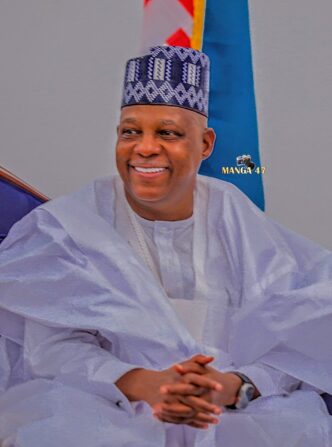Bloomberg- Nigeria is finally getting a favorable nod from investors, pushing stocks higher and bond yields lower as painful reforms restore confidence.
Gatekeepers News reports that Nigeria’s sovereign risk spread has fallen to the lowest level since January 2020, erasing the premium accumulated during the pandemic and subsequent strain on its economy. Its NGX All Share index is up 11% since Dec. 2, triple the rise of the MSCI gauge for developing-world equities.
While US President Donald Trump’s widening trade war has taken emerging markets on a wild ride, Nigeria has quietly held its own, attracting foreign capital reassured by currency reforms and other measures designed to revive the economy of Africa’s most-populous nation.
“Nigeria appears to be back in business as long-awaited economic reforms take shape,” said Emre Akcakmak, portfolio manager at East Capital. Key measures include improved currency liquidity, leeway for investors to repatriate their profit, and the stable naira.
“We feel the Central Bank of Nigeria will continue to stem any sharp appreciation of the naira to limit profit taking from the fast money community,” Akcakmak said.
The central bank, which is expected to hold interest rates steady at 27.5% when it announces the decision of the monetary policy committee’s meeting on Thursday, raised borrowing costs aggressively last year to curb inflation and stabilize the local currency.
The naira suffered prolonged volatility after President Bola Tinubu eased its peg against the dollar in 2023, alongside other reforms. The shock, which triggered a 70% devaluation against the greenback, took most of last year to fade until CBN steps to improve liquidity and transparency eventually gained traction.
The unit has held in a narrow range between 1,470 and 1,550 per dollar since early December. That composure is having widening benefits.
“Portfolio inflows have likely been supported by improved confidence amid key structural reforms, better FX market functioning and moderating dollar-naira volatility, as well as the still-robust nominal yield buffer,” said Samir Gadio, head of Africa strategy at Standard Chartered Plc.
“Besides, Nigeria’s local market is seen as less correlated with global risk conditions than more liquid EM peers,” he said.
Yields on Nigeria’s $1.5 billion eurobond due in 2034 have declined to 9.69%, the lowest since its early December launch, and a domestic debt auction was three-times oversubscribed last week, with the Open Market Operation bills allotted at 21.45% versus 22.65%.
As well as raising borrowing costs by 875 basis points since taking office in September 2023, central bank Governor Olayemi Cardoso has cleared a backlog of local orders to purchase dollars that had dogged the naira and used OMO auctions to mop up excess liquidity.
“We are bullish on the Nigerian reform story,” analysts at Citigroup Inc. wrote in a client note. The “naira has been stable recently, largely driven by the growing confidence of offshore investors through foreign portfolio investment inflows.”











